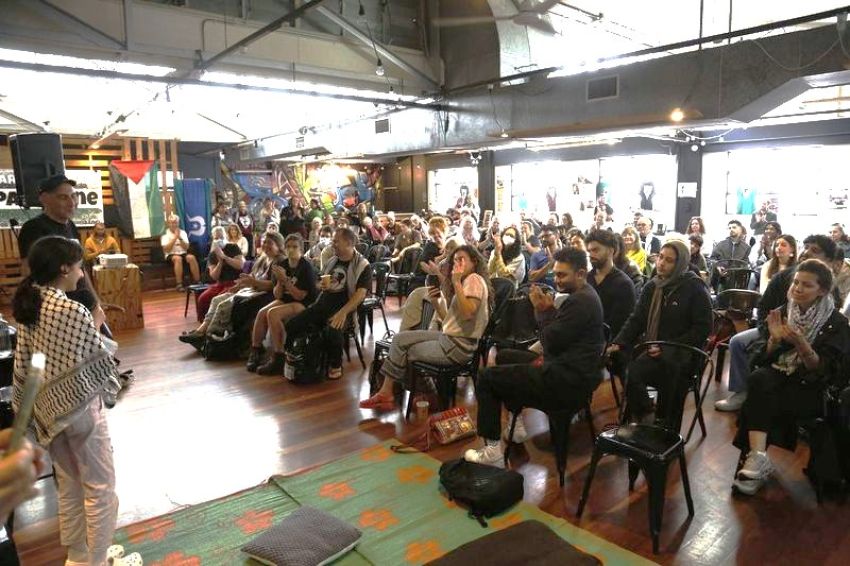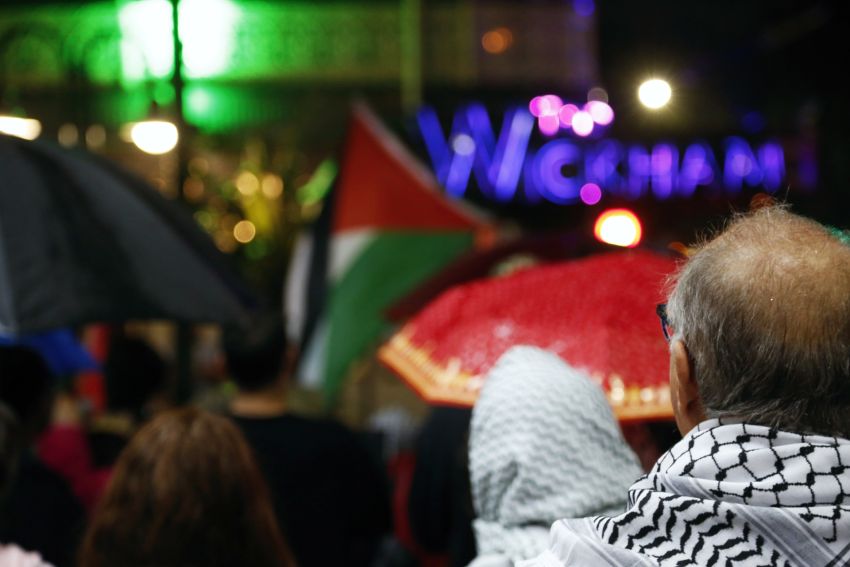
Close to 200 people attended the successful Activism for Palestine conference, from May 30 to June 1, including from Western Australia, Northern Territory, Tasmania, Victoria, regional Queensland and New South Wales. It was an impressive effort by Justice for Palestine (JFP) Magan-djin.
The conference opened with Yuggera man Henry welcoming people onto Country, saying the gathering was for a “great cause”.
Palestinian academic Lana Tatour, Aboriginal journalist Amy McQuire and JFP activists Jamal Nabulsi and Remah Naji spoke at the opening public meeting. “It’s crucial that we persist and resist with all means at our disposal”, Nabulsi said, even though “no action ever feels like ‘enough’ in the face of this scale of violence”.
He confided that he doesn’t know “if we’ll be able to return to a liberated Palestine in our lifetime”, but, echoing the words of Murrawah Johnson, he said “I do know that we won’t be the broken link in the long chain of Palestinian resistance”.
Tatour paid tribute to the “extraordinary solidarity” First Nations people had shown to the Palestinian struggle.
She stressed that the majority of the world is with Palestine, with millions taking to the streets for 20 months. She said she did not imagine we would still be fighting back on day 602 of Israel’s genocide, or that events could “get worse”.
“The settler capacity to innovate ways to torture and kill is really quite remarkable,” Tatour said. “The failure to prevent children from dying is not because we don’t do enough. It is because Palestine has exposed the really imperial, colonial, racial, capitalist foundation of the world order.”
The first full day of conference featured a panel on “Why we fight for a Free Palestine”, with workshops on Zionist settler-colonialism and Thawabit (the “fundamentals” of the Palestinian liberation movement). After “How we can contribute to Palestinian liberation”, there were workshops about the experiences of Naji’s campaign for the seat of Moreton and building solidarity in the union and the student movements, among others.
Another workshop focused on the importance of the mass protest movement.
Attendees supported an action called by staff at the nearby Wickham Hotel, unhappy with the Zionist Council of Queensland holding an event there. Protest organisers said staff and performers at the Wickham had asked for the event to be cancelled, but the hotel owners had refused.
“We do not welcome or condone Zionism in queer spaces,” they said. About 100 conference-goers marched down to the Wickham and were welcomed with free pizza by the protest organisers.
A well-attended cultural event on the Saturday night featured Sophie Nishizawa, Pig City Sensored and the Zaytoun Dabke Troupe. Musician Phil Monsour, who is a JFP organiser, also launched his new album The Last Sky.
Practical activities to help end the genocide and win a free Palestine were discussed on the final day, including workshops on the Boycott Caltex campaign, union action against the Zim shipping line and direct action and campaigning to get superannuation companies to divest from Israeli companies.
While no formal decisions were made, there was recognition that stronger national coordination would help the movement win some of its directed aims. A post-conference meeting of direct action campaigners discussed forming a national network to target the weapons industry.

[Alex Bainbridge is an activist with Justice for Palestine Magan-djin and a member of Socialist Alliance.]